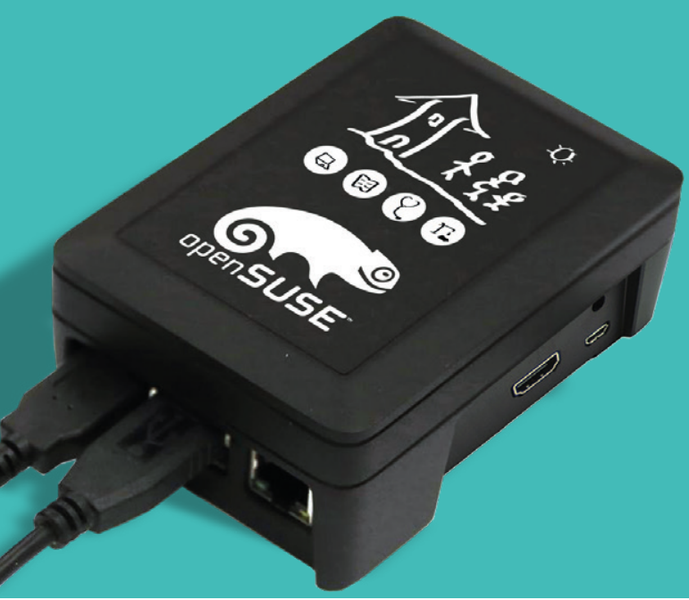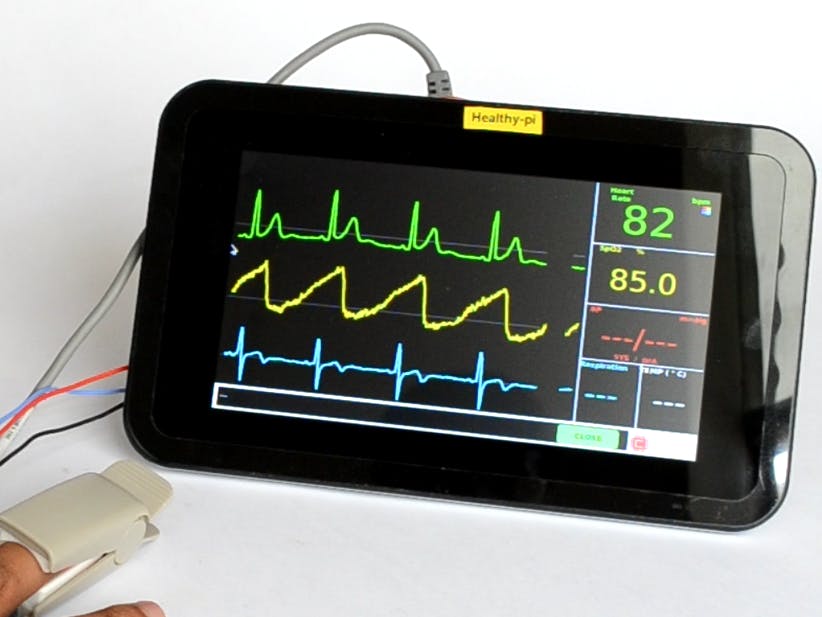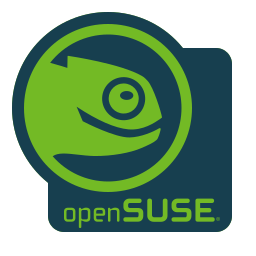Run a Hospital on a Raspberry Pi with GNU Health
Table of Content
It may come to you as a surprise that you can run a complete system for hospital and medical facility management with a Raspberry Pi, but you really can do that.
In this article, we will explain to you how this is possible. But first, let's breakdown the big picture for you.
Raspberry Pi

Raspberry Pi is a single-board box-sized computer that has gained reputation over the years for prototyping and creating real-life applications. In short, Raspberry Pi is a complete computer but in a tiny package which costs $45. It's already being used for education, prototyping, "internet of things" IoT, robotics and much more.
There are several models for Raspberry Pi each having a different CPU/RAM combination. And it has a supportive community that releases dozens of resources, video tutorials, showcases and guides for it to use it for various real-life applications.
We've made a list of Raspberry Pi medical applications that includes demos, proof-of-concept projects, and production-ready applications:

Beside its large community, Raspberry Pi comes with many advantages: It's very cheap and affordable, easy to install and maintain.
GNU Health

GNU Health is our favorite hospital management and electronic health record system. Not just because of its rich feature list and clinical-specific modules but also because it's a free and open-source system.
GNU Health supports many healthcare use cases and management scenarios which makes it possible to use to fulfill the demands of many hospitals with different sizes and setups.
The project started in 2008 by Dr. Luis Falcon as a clinical management system for hospitals and clinics in rural areas. The project has been evolving ever since, and it gained popularity in Africa/South America and support of a well-formed community.
In 2011 the project joined official GNU projects as Richard Stallman declared it as a part of official GNU packages.
GNU Health works primarily on GNU/Linux based distributions and BSD-base distributions like FreeBSD. It also offers desktop clients for macOS and a web-client that works seamlessly with all popular web browsers. The project comes with many clinical modules, tools, and packages to cover all aspects of running a hospital.
The killing bullet, though, is that it also works on Raspberry Pi.
GNU Health Features
Here is the GNU Health modules list:
- Patient registration
- Patient records management
- Nursing
- Obstetrics and Gynaecology
- Surgery
- Pediatrics
- Radiology management (medical imaging management)
- In-patient management
- ICU "intensive care unit" management
- Demographics and Epidemiology
- Tropical (neglected and rare) disease manager that includes
- Laboratory Information Management System "LIMS"
GNU health also features powerful administrative modules:
- Advanced reporting system
- Advanced accounting modules: Financial accounting and analytic accounting
- Purchase administration
- Stock and inventory management
- Calendar management
On the technical side, GNU Health offers a complete setup and configuration guide. There are also instructions for system backups restore and upgrades.
Now, let's come to the topic of the day:
What does it take to run GNU Health on Raspberry Pi?
GNU Health offers a GNU Health in an embedded Linux-based disk image for Raspberry Pi 3 with the openSUSE distribution.

The openSUSE Linux is an enterprise-grade desktop open-source Linux distribution that comes with advanced tools for management (YaST2), a stable environment and an active community. It's a reliable option for home and office computers.
Setting Up GNU Health Embedded on Raspberry Pi
It takes a few minutes to install and set up GNU health and make it up and running on Raspberry Pi. You can start by downloading the GNU Health Raspberry Pi image, uncompresssing it and burning it on an SD card.
If everything goes as expected, you will be able to boot the Raspberry Pi device without any problems. GNU Health will be already running for you after the set up, just ready to use!
Here are the default passwords to access the system:
- root: freedom
- genuhealth: freedom
Don't forget to change the password once you login.
Concerns about using Raspberry Pi
Some may be skeptical about using a single-board computer to manage hospitals or clinics. Others may have concerns about performance, security, backup, and data safety. However, the GNU Health Embedded or "GNU Health in a Box" is proven to be reliable in many hospital and clinical environments.
It is up for the system administrator to install the need security, backup and performance monitoring systems in place to monitor the underlaying hospital system. However, GNU Health running on the Raspberry Pi does not limit you in that regard, and can be used nonetheless anywhere.
Resources
- GNU Health
- GNU Health Embedded
- GNUHealth, open source hospital information system (HIS) is gaining more ground
- Raspberry Pi medical and healthcare applications
- openSUSE Linux
- openSUSE Linux for Raspberry Pi 3











